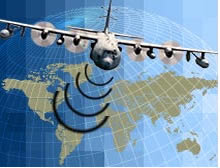
BY: CAPITOL HILL CUBANS
February 15, 2011
In this weekend's New York Times, columnist Nicholas Kristof ("What Egypt Can Teach America") suggests important lessons for U.S. policymakers to derive from current events in Egypt.
Amongst them:
- New technologies have lubricated the mechanisms of revolt. Facebook and Twitter make it easier for dissidents to network. Mobile phones mean that government brutality is more likely to end up on YouTube, raising the costs of repression. The International Criminal Court encourages dictators to think twice before ordering troops to open fire.
Maybe the most critical technology — and this is tough for a scribbler like myself to admit — is television. It was Arab satellite television broadcasts like those of Al Jazeera that broke the government monopoly on information in Egypt. Too often, Americans scorn Al Jazeera (and its English service is on few cable systems), but it played a greater role in promoting democracy in the Arab world than anything the United States did.
We should invest more in these information technologies. The best way to nurture changes in Iran, North Korea and Cuba will involve broadcasts, mobile phones and proxy servers to leap over Internet barriers. Congress has allocated small sums to promote global Internet freedom, and this initiative could be a much more powerful tool in our foreign policy arsenal.
Meanwhile, Wired Magazine ("U.S. Has Secret Tool to Force Internet on Dictators") reminded us last week:
The U.S. military has no shortage of devices — many of them classified — that could restore connectivity to a restive populace cut off from the outside world by its rulers. It's an attractive option for policymakers who want an option for future Egypts, between doing nothing and sending in the Marines. And it might give teeth to the Obama administration's demand that foreign governments consider Internet access an inviolable human right [...]
Arquilla, a professor at the Naval Postgraduate School, spent years urging the military to logic-bomb adversary websites, disrupt hostile online presences, and even cause communications blackouts to separate warring factions before they go nuclear. What the military can turn off, he says, it can also turn on — or at least fill dead airspace.
Consider the Commando Solo, the Air Force's airborne broadcasting center. A revamped cargo plane, the Commando Solo beams out psychological operations in AM and FM for radio, and UHF and VHF for TV. Arquilla doesn't want to go into detail how the classified plane could get a denied Internet up and running again, but if it flies over a bandwidth-denied area, suddenly your Wi-Fi bars will go back up to full strength.
In 2004-2005, the Bush Administration experimented with the use of Commando Solo to provide weekly transmissions of Radio and TV Marti to Cuba. These efforts proved successful in overcoming the Castro regime's jamming of radio and television signals.
However -- due to cost constraints -- Commando Solo was soon thereafter replaced with a small twin-engine propeller plane, AeroMarti, which transmits TV Marti while flying in a limited capacity over U.S. waters.
With today's technology and transformational power of the Internet, the time is ripe for the Obama Administration to reinstate Commando Solo flights -- even once a week -- and target Castro's censorship and jamming of Internet connectivity for the Cuban people.

No hay comentarios:
Publicar un comentario